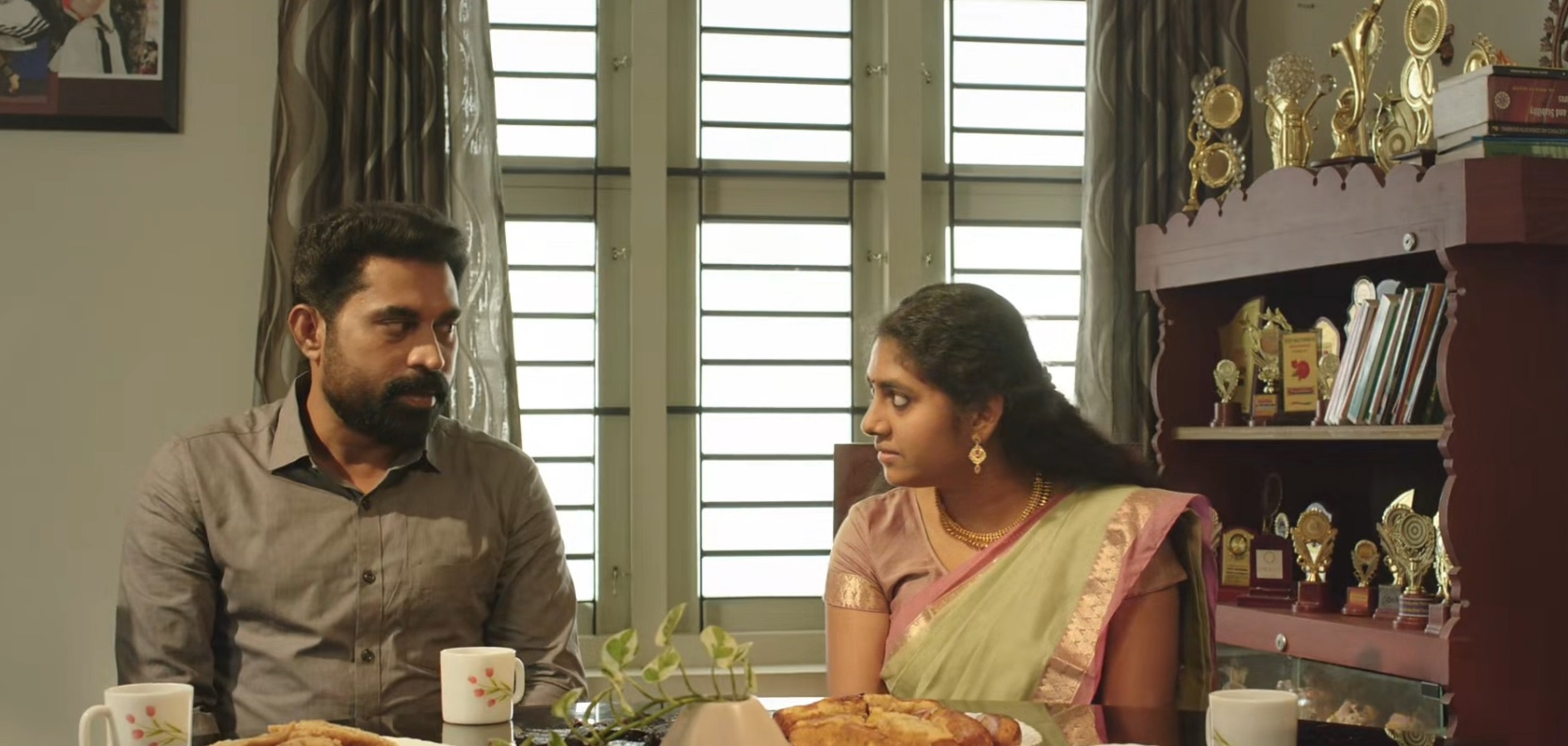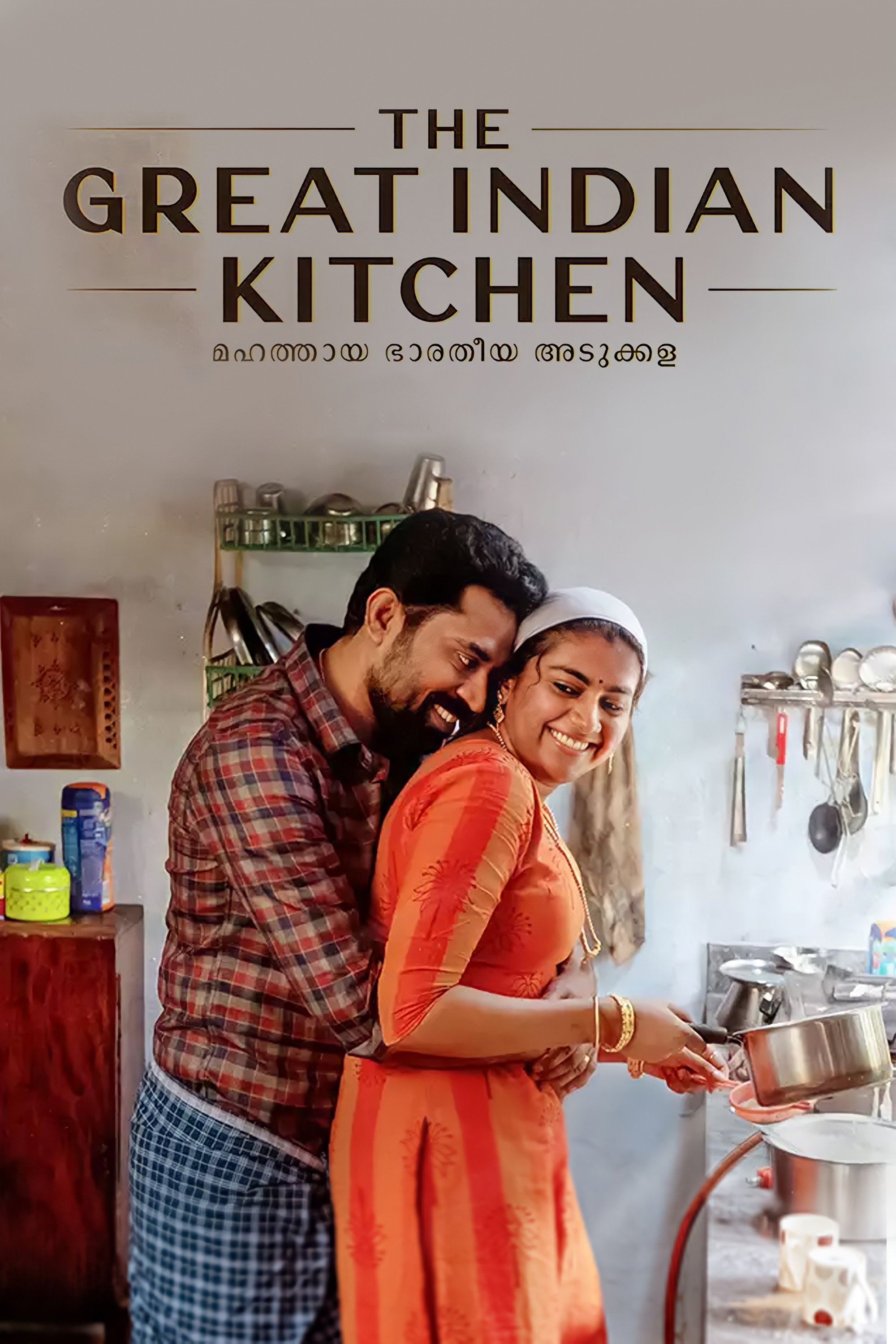To depict an Indian household with nuance is a tricky task, and director Jeo Baby walks that fine line in the Great Indian Kitchen. The movie begins with such joyousness and aplomb that it becomes impossible for us to predict what is to come. The shackles of patriarchy clench their teeth deep enough to ravage the women in the house.
Many films show scenes of family members relishing the food that is being prepared for them, but never do we show what happens behind the stove. The woman of the house, overburdened as always. In this film, about a Keralite family, women are so invisible that oppression is like second nature to men. The film begins with shots of a radiant girl dancing merrily at school, which are feverishly intercut with a sumptuous meal being made. It is only a little later, we realize that the dishes are being made by the mother of the aforementioned girl, who is now to be married off to a house she knows nothing of.
Slowly the pernicious nature of the oppression reveals itself. When the woman in question pastes the chutney through the mixer-grinder, the men remind her how the real taste of their food lies in it being ground by hand. When she uses the washing machine to wash the clothes, the patriarch in the house asks her to wash them with her hand instead. The boy’s mother has been doing all these for so long without any hiccup and hence, it is unthinkable for them to consider anything otherwise.
When mother of the house has to go stay with her pregnant daughter, the new bride has to take on all the responsibilities. She never gets the rest or appreciation she deserves; instead, she is met with the grime of uncooked vessels and the stench of overflowing sinks. She nurtures her in-laws, but they do not wish to nurture her. She washes the dishes, cleans the house, but she yet has take their permission to work on her own dreams.
The politics of erstwhile Kerala also find their place in this film, especially the hue and cry associated with Sabarimala. Menstruating women are to be kept caged in a single room and are not even allowed to sleep on their beds, and in the event of her touching anything “pure”, a thorough re-cleanse follows. Problems always arise when it is the men's time for pilgrimage and the woman is menstruating. What follows, boggles my mind. They call their aunt who comes solely to cook for them and wash and clean their house. This makes me acutely aware of not just the banality of the chores women are asked to perform, but how replaceable they are. What's worse is that these practises happen in so many households to this date.
The Great Indian Kitchen’s penultimate scene is where the woman carries out one of the most rebellious activities I have seen. She stormss out of her in-law's house to her parents, only to come across the same old misogyny she was hoping to escape from. Her brother, upon entering the house, demands a glass of water and that's when she breaks. She shouts at him, berates him for not fending for herself, and her visceral anger not only shocks her family, but us as the audience as well.
Films like these should be viewed far and wide. Even if the tiniest inkling arises from watching the woman toil, the country will be in a better place. And for those who thought this was a fun film about food, look elsewhere.










